Human-wildlife conflict and coexistence is a shockingly common problem, often with enormous consequences for both individual animals and entire populations.
When human-wildlife conflict comes to mind, you may immediately think of wildlife crime instead - which isn't wrong, since many regions with wildlife crime problems like poaching are also areas where people may frequently deal with human-wildlife conflict, causing the two issues to go hand-in-hand. But human-wildlife conflict is a much broader issue encompassing many ways that human presence and interference can cause problems for us and animals alike. Human-wildlife conflict includes:
- Elephants trampling a farmer's crops, resulting in retaliation
- New real estate developments infringing on ecosystems where predator species live, leading to predators having less territory and less food, which in turn leads to predators attacking domestic animals and livestock
- Freeways dividing the territory of animals like mountain lions, leading to wildlife venturing into neighborhoods or being killed by cars
- Lead bullets used in hunting causing scavengers like condors to die of lead poisoning
These are just a few examples of how humans can negatively impact wildlife, and it's clear to see how many of these scenarios could escalate. Human-wildlife conflict solutions don't just include ways in which we can prevent these issues (for example, through tracking predators, monitoring populations' territories, or building barriers and wildlife crossings monitored by sensors), but also the ways in which we can help people connect with wildlife and care about learning to live alongside them.
If you're interested in solutions that can prevent human-wildlife conflict, join this group and get to know the people who are working to protect and save species around the world!
Header image: Casey Allen on Unsplash
No showcases have been added to this group yet.
- @UrsusAmer66
- | He/Him
Research Ecologist focused on human disturbance and ecophysiology
- 0 Resources
- 0 Discussions
- 5 Groups
Noé
Hi! I am Aurélie, a dedicated French ornithologist and engineer specialized in conservation technologies. I am currently Program manager for the biodiversity of natural habitats' program in a French NGO called Noé.

- 0 Resources
- 1 Discussions
- 5 Groups
Gui
- 0 Resources
- 0 Discussions
- 7 Groups
Ol Pejeta Conservancy
Endeavoring to implement tech solutions for conservation.



- 0 Resources
- 18 Discussions
- 11 Groups
- @ppebs
- | she/her
Primatologist who studies human-primate coexistence and self-medicative behavior in non-human primates
- 0 Resources
- 1 Discussions
- 7 Groups
Wildlife Drones
Wildlife Drones has developed the world’s most innovative radio animal-tracking system using drones so you can track your radio-tagged animals like never before.


- 18 Resources
- 8 Discussions
- 31 Groups
- 0 Resources
- 0 Discussions
- 9 Groups
- @jmasseloux
- | She/Her
Programme Coordinator and M&E Specialist at ZSL Thailand

- 0 Resources
- 3 Discussions
- 2 Groups
- 0 Resources
- 0 Discussions
- 10 Groups
- @emilyhuston
- | she/her/hers
Hi! I am currently pursuing a masters degree in wildlife conservation and management, and I am looking to gain more information and form connections with people who are interested in all the same things :)
- 0 Resources
- 0 Discussions
- 6 Groups
- @GrecoBobby
- | He/Him
PhD Student Clemson University. Investigating applied management techniques in crocodilians
- 0 Resources
- 0 Discussions
- 4 Groups
Conservation Director, Texas with National Audubon Society
- 0 Resources
- 4 Discussions
- 3 Groups
Read our interview with Sandra Maryanne, a young conservation tech innovator raised in Taita, Ivarenyi with first-hand experience on the challenges of human-elephant conflict within her community. To address this, she...
7 August 2023
Human-Wildlife Conflict is a pressing conservation challenge affecting natural ecosystems, biodiversity and local communities across East Africa. This has led to the development and adoption of diverse conservation...
1 August 2023
JICA, Japan’s International Cooperation Agency is seeking a digital partner with a proven track record in conservation technology as we launch a pilot project to test technologies to mitigate human-elephant conflict in...
19 June 2023
In this Conservation Tech Showcase case study from Big Life Foundation, you’ll learn about their successes using EarthRanger and LoRaWAN Smart Parks Solution technologies to monitor wildlife in East Africa.
8 June 2023
Richard Turere from Kitengela, invents flashing lights to mitigate human wildlife conflict. He came up with “Lion Lights,” a system that deters predators such as lions from attacking livestock using flashing lights....
31 May 2023
Are you using or creating tech to protect wildlife? We want to support your organization through two $15,000 grants!
15 May 2023
Quick feature of Virgina Tech project using camera traps and biologgers to track bobcats, collecting data to inform human-wildlife coexistance efforts
26 April 2023
New paper in Trends in Parasitology discusses how acoustic monitoring can be used to assess presence and overlap of host or reservoir species, disease vectors and human activity.
8 March 2023
New article about how climate change and human-wildlife conflict go hand-in-hand. Would be interesting to hear from our climate change and HWC groups about how climate scientists and community members who are innovating...
1 March 2023
Article
Assessing the Efficacy of a Novel Olfactory Approach to Mitigating Elephant Crop Raiding in Uganda and Kenya
24 February 2023
Scholarships available for training courses focussing on nature restoration in East Africa
21 February 2023
Technology to End the Sixth Mass Extinction. Salary: $104k-144K; Location: Washington DC or Seattle WA, potential hybrid; 5+ years of Full stack development experience; Deadline March 15th - view post for full job...
10 February 2023
October 2025
event
September 2024
event
32 Products
3 R&D Projects
42 Organisations
Recently updated products
Recently updated R&D Projects
Recently updated organisations
| Description | Activity | Replies | Groups | Updated |
|---|---|---|---|---|
| I did a short presentation on our work with the polar bear alarm in the Wildlabs Variety Hour October 30th.It can be found here : https://www.youtube.com/watch?v=zr2Q8bUJZ8U... |
|
Human-Wildlife Coexistence, AI for Conservation | 9 months 3 weeks ago | |
| Thanks, we know they are breeding these animals here, I asked, since it's seems to be an expensive hobby, we need to allocate more funding for rural women in entrepreneurship and... |
|
Acoustics, Animal Movement, Citizen Science, Human-Wildlife Coexistence, Protected Area Management Tools, Wildlife Crime | 9 months 4 weeks ago | |
| 180m is indeed very high and from above. I think a 640x512 thermal sensor with a 70mm lens can see animals at at 180m from sideways and could recognise something as a deer, but... |
+11
|
Drones, Human-Wildlife Coexistence | 10 months ago | |
| I would love to see my bat detector designs in use in Africa - drop me a line, let's see if we can get something to happen - I'm pipistrelledetector at gmail dot comhttp://www.... |
|
Citizen Science, Acoustics, Conservation Tech Training and Education, Human-Wildlife Coexistence | 10 months 1 week ago | |
| Odor based methods would be interesting. Provided they didn't need to be replenished too often.We find varied stimulus prevents habituation. |
+6
|
AI for Conservation, Conservation Tech Training and Education, Emerging Tech, Human-Wildlife Coexistence | 10 months 2 weeks ago | |
| Dear Alex Rood,Thank you so much for the advice. I’ll make sure to regularly check the career openings on resources page. I appreciate your support. |
|
East Africa Community, Community Base, Early Career, Human-Wildlife Coexistence | 11 months 1 week ago | |
| Thank you so much! Now everything is in the hands of amazing organizations and companies! But the first results of the Disaster Management cohort are bringing a very optimistic... |
|
AI for Conservation, Climate Change, Early Career, East Africa Community, eDNA & Genomics, Emerging Tech, Ending Wildlife Trafficking Online, Human-Wildlife Coexistence, Open Source Solutions | 1 year ago | |
| @cmwainaina please take a look |
|
Animal Movement, AI for Conservation, Camera Traps, Connectivity, Data management and processing tools, East Africa Community, Emerging Tech, Ethics of Conservation Tech, Human-Wildlife Coexistence, Marine Conservation, Protected Area Management Tools, Geospatial, Sensors, Software Development | 1 year ago | |
| Hi @nyangetamagesa , i'm so grateful for our input. |
|
Human-Wildlife Coexistence, Data management and processing tools, East Africa Community, Women in Conservation Tech Programme (WiCT) | 1 year ago | |
| Thank you so much Adventina for sharing this wonderfully knowledge with me. |
|
Human-Wildlife Coexistence | 1 year 1 month ago | |
| I will start by asking: What will the future of conservation be if all the incentives do not hit the jackpot????In recent years, we have... |
|
Conservation Tech Training and Education, East Africa Community, Human-Wildlife Coexistence | 1 year 1 month ago | |
| In that case, you might want to keep an eye on the project from @Lars_Holst_Hansen |
|
Camera Traps, AI for Conservation, Conservation Tech Training and Education, Early Career, Human-Wildlife Coexistence, Protected Area Management Tools | 1 year 2 months ago |
5 Smart Technologies That Will Crack Down On Wildlife Trafficking
14 November 2016 12:00am
WildLabs success! E-shepherd predator deterrent trials in USA
25 January 2016 8:04pm
26 April 2016 2:12pm
@Rachel , the last time I checked (2015), it was about R1200-00 per collar. In South Africa that can be approximated as the price of one sheep. To my mind, that only makes it viable and affordable if the predation (or theft?) levels are very high (more than 10% losses/year?).
I have to add two additional observations:
- Sheep breeds differ in the extend to which they flock together in a single herd (e.g. African indigenous breeds graze together in larger herds than the most popular breeds in South Africa (Merino or Dorper). In these breeds it might be possible to have less collars per sheep.
- My greatest fear is that it will work wel for a year or two. Jackals (and I assume coyotes as well) are extremely intelligent. And methods which worked at first (e.g. bell collars) soon became useless. With jackals we also have the issue that many of the jackals on farms are now starting to hunt in packs instead of the typical territorial pairs (with helpers). So a commonly solitary hunter (the pairs would often hunt separately) is now turning into a pack hunter. However, I do think that it might remain fairly effective against solitary cats. I would be interested in the results of the tests in America, but I think it should be for at least a 3 year period (I know funding etc. might be an issue).
3 November 2016 5:09pm
@Suzanne.Stone have you had any success with your trials in Idaho?
Camera Trap based Alarm Systems
22 March 2016 9:14am
12 April 2016 10:19am
This might be a silly question, but why do you need a camera trap for either purpose - unless you want a record of specific individuals?
If the aim is to provide an alarm to scare off elephants then a system that uses a simple motion sensor wired to an alarm would do the same thing at a much lower cost without the risk of damage or theft that all camera traps suffer from.
If the aim is to alert locals then the Indian Nature Conservation Foundations Elephant Early Warning System is worth exploring http://ncf-india.org/projects/in-the-elephant-hills
21 April 2016 9:01pm
Hi James,
Thanks for sharing information on NCF's early warning system. NCF's tool is great and works well for the context in Valparai where it's being used. We work closely with them as well. As you are aware, the context for each conflict situation is different. These are open plantation areas where elephants can be seen if present in any patch, while in other areas, it's harder to tell when they come out of forested protected areas and into adjacent habitation in order to warn people. And for a number of the landscapes where we work, that particular approach may not be as effective, we are trying to test other forms of early detection. Do let us know if you learn of any results from camera-trapping early warning systems as well using a tool that could potentially serve multiple purposes. Many thanks.
Nilanga
27 October 2016 11:01pm
Hi everyone!
I have just posted about my machine-vision based elephant-detection system which I am currently attempting to develop! https://www.wildlabs.net/community/thread/284
Internet Cats Just Got Bigger
26 October 2016 12:00am
New journal article shows deficiency of studies on effectiveness of predator controls
2 September 2016 1:46pm
How can we bridge the gap in mitigating human-wildlife conflict?
2 August 2016 1:23pm
27 August 2016 5:09am
Hi John, I have two good friends in Kenya who have some answers. I'll ask them to come here and tell you more...
Marie
Perspectives from the World Ranger Congress
10 August 2016 12:00am
Wildlife Tracking Equipment Grants from Holohil Transmitters
20 July 2016 12:00am
Article: Drawing Eyes on Cow Butts May Ward Off Hungry Lions
19 July 2016 7:25am
Camera traps reveal mysteries of nature
18 July 2016 12:00am
Can Drones Live up to the Hype?
8 July 2016 12:00am
Passive Acoustic Monitoring: Listening Out for New Conservation Opportunities
29 June 2016 12:00am
TEAM Network and Wildlife Insights
28 April 2016 12:00am
Migration monitoring app
25 April 2016 1:36pm
Deterring bears while backpacking
5 April 2016 3:15pm
19 April 2016 3:32pm
Ho John,
That's a great idea and thanks for sharing, but as you said, limitations on battery and speaker capacity abound. Might anyone else have any thoughts on how we could use apps to prevent HWC? There are apps that provide the ability to track wildlife through satellite collars for monitoring purposes. Is anyone aware of whether this type of app is being used also for HWC prevention using geo-fencing through collars or other means? Thanks.
Nilanga
15th International Elephant & Rhino Conservation and Research Symposium
4 March 2016 12:00am
Mobile Phone Reporting for Rapid Wildlife Health Response in Uganda
22 December 2015 12:00am
Achieving Moonshots: Advancing Humankind and Preserving Nature
22 December 2015 12:00am
The Impact of the Internet of Things
10 December 2015 12:00am

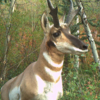



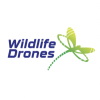







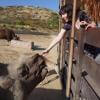






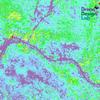

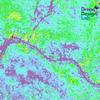











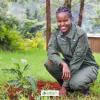


















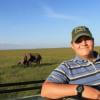
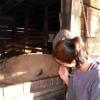
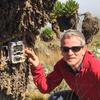

11 February 2016 8:14pm
Thanks, @Suzanne.Stone ! It would be wonderful if the community could track your progress in this thread. Also looking forward to reading your Journal of Mammology paper.
- Rachel